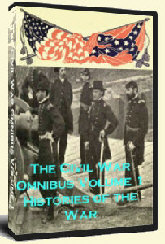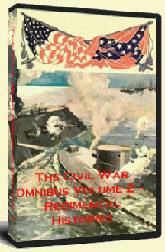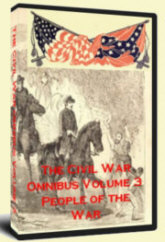After his election to the presidency, Abraham Lincoln made appointments to his cabinet that perplexed not only his advisors but the entire nation. Of the Republicans he appointed, he chose men who openly disagreed with his policies, who’d supported his opponent, and even a couple who’d run against him for the presidential nomination. Many of these men had their own reasons for wishing to see him fail. Secretary of State William Seward and Secretary of the Treasury Salmon P. Chase, just to name two, both had designs on the White House, but one of his most surprising appointments was that of Edwin Stanton, an appointment that not only crossed party lines, but also put at the helm of the Civil War who’d referred to Lincoln on more than one occasion as “the original gorilla.”
Lincoln’s propensity for keeping his friends close and his enemies closer was obvious, but somehow Stanton, an enemy who was not only a Breckinridge Democrat but loudly critical of Lincoln, somehow missed being included in Lincoln’s initial appointments, despite his apparent qualification. Lincoln’s first appointee to the position of Secretary of War was Simon Cameron, a Pennsylvanian thought to be useful for his political and business ties. However useful Cameron was politically, he was certainly not of the caliber that the position needed during a civil war, and the fact that he would have to be replaced soon became obvious, even to Lincoln, who tended to overlook the faults of others, to a fault.
The dreadful disaster of Sunday [Battle of Bull Run] can scarcely be mentioned. The imbecility of this administration has culminated in that catastrophe, and irretrievable misfortune and national disgrace are to be added to the ruin of all peaceful pursuits and national bankruptcy as the result of Lincoln’s ‘running the machine’ for five months.” Edwin Seward to former President Buchanan
Stanton had established himself politically by serving as attorney general under the singularly undistinguished Buchanan. After Lincoln’s election, Stanton vociferously criticized the president at every opportunity. However, once Stanton’s close friend Salmon P. Chase let him know that Secretary of War Cameron was not long for the office, Stanton wasted no time in gaining Cameron’s confidence – long enough to give Cameron advice that would result in his dismissal. with the help of Chase, Stanton managed to wrangle the position for himself.
Although a better prepared man for the position of Secretary of War than the erstwhile Cameron, Stanton nevertheless served as a tyrant throughout the war, his strong administration of the war department tarnished by his own irascibility.
General George McClellan was one of the first problems stanton encountered as Secretary of War. Like many in Washington, Stanton had initially been a staunch supporter of McClellan, who, although charming and intelligent, nevertheless proved to be a less than efficient military officer. However, once McClellan began to fall from favor, Stanton’s opinion of McClellan changed, and he was instrumental in having McClellan demoted from major general. he worked hard not only to destroy McClellan, but to also destroy the reputations of all those in the military who’d supported McClellan, whom Stanton suspected of having southern sympathies.
Stanton went after any and all who were close to McClellan or whom he suspected of being sympathetic to the confederacy, sometimes confusing the two. He spent an inordinate amount of time and energy persecuting union officers whom Stanton suspected of the treachery of siding with the south. One of these persecutions ending in prosecution – the infamous court-martial of general Fitz John Porter, who had run afoul of some of Stanton’s military cronies, and had compounded matters by remaining close to McClellan. not only was the court-martial basely biased against Porter, who spent the rest of his life clearing his name, but Stanton abused his position as Secretary of War to bully every union officer who sat in judgment on porter to convict or risk stalling their careers.
Lincoln was aware of Stanton’s heavy-handedness, but supported his Secretary of War in order to preserve the Union. However, Lincoln sometimes “plowed around” Stanton, in his own words, and his last act as president was overriding Stanton’s decision to execute George S.E. Vaughn for spying, pardoning Vaughn only hours before his execution, and only an hour before Lincoln’s assassination.
Edwin Stanton was one of the more controversial of Lincoln’s appointments during the Civil War, and for good reason. While an excellent administrator, Stanton’s personal vindictiveness and prejudices have tarnished his reputation.


